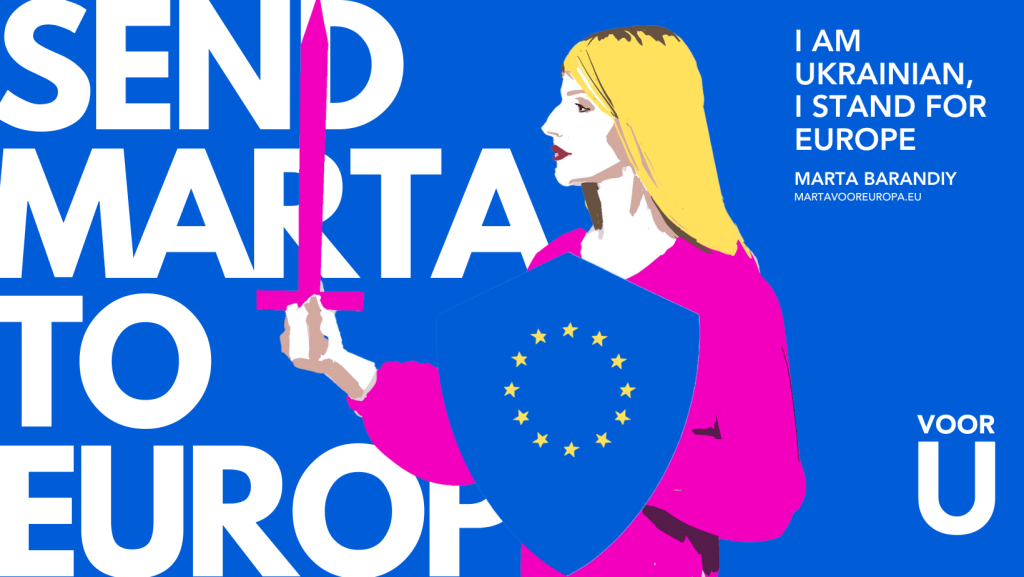The 2024 European Parliament elections, slated for June 6-9, are poised to be a pivotal moment for the European Union, arguably more critical than any previous election.

The geopolitical landscape has shifted dramatically, with the EU striving to assert itself as a more prominent player in global security, a transition sparked by external pressures such as Russia’s aggression in Ukraine and evolving threats in cybersecurity and terrorism.
Another major shift is political: the evolving nature of the EU’s democratic processes and the increasing engagement of its citizens in shaping the Union’s future.
And we are a part of these changes.
Politics and the Balance of Power
The elections are expected to witness a considerable rightward shift in many EU countries, with populist radical right parties gaining votes and seats across the Union.
This tendency could significantly alter the current political balance within the European Parliament, affecting policy directions on crucial issues like migration, environmental policies, security, defense, and the EU’s stance on international matters.
The Role of Transnational Lists and the Spitzenkandidaten Process
The introduction of transnational lists combined with the lead candidate (Spitzenkandidaten) process, although not yet enshrined in law, suggests an ongoing evolution towards more supranational democracy in the EU.
These developments aim to deepen the democratic legitimacy of EU institutions and enhance the direct link between EU citizens and the Commission’s Presidency despite challenges in reaching a consensus on these reforms.
The lead candidates’ process is set to continue amid institutional tug-of-war. This process has changed the dynamic of EP elections and increased their stakes, potentially influencing the visibility and public engagement in the 2024 elections.
Citizen Engagement and Participatory Democracy
The potential increase in citizen engagement, spurred by initiatives like the Conference on the Future of Europe, suggests a growing awareness and involvement of the EU populace in the Union’s democratic processes. Recommendations from the Conference, such as harmonizing electoral conditions and increasing citizens’ say in electing the Commission President, reflect a collective desire to make the European elections a truly significant event in EU democracy.
Security and Defense
The EU has been working towards enhancing its Common Security and Defense Policy (CSDP), focusing on tackling disinformation and foreign interference and strengthening the EU’s digital diplomacy. The Global Gateway strategy aims to foster smart, clean, and secure connections worldwide, emphasizing the EU’s role in global security and its commitment to sustainable growth. The European Commission has also outlined a new Security Union Strategy, targeting four strategic priorities to ensure security for all in Europe, encompassing the fight against terrorism and organized crime and addressing evolving threats in the digital and physical realms.
Recent geopolitical events, particularly the war in Ukraine, have underscored the urgency for the EU to bolster its defense capabilities. There have been calls for the EU to demonstrate significant progress in defense projects, such as the Future Combat Air System (FCAS) and the Main Ground Combat System (MGCS), to fulfill the promise of European defense autonomy. However, internal challenges such as industrial infighting and differing political ambitions have complicated these efforts.
Moreover, the EU is looking towards joint procurement and enhanced cooperation to strengthen its defense industrial capacity. Initiatives like the European Defence Investment Programme (EDIP) and European Defence Capability Consortia (EDCC) aim at collaborative procurement of defense capabilities, supported by the EU financing and VAT exemptions, highlighting a move towards a more integrated European defense market.
Implications for EU Policies and Global Challenges
The European Parliament plays a crucial role in shaping EU policies that tackle global and regional challenges, including climate change, security and defense, migration, and economic growth. The outcomes of the 2024 elections will directly influence the EU’s ability to address these issues, making the participation of EU citizens more crucial than ever.
Final word
The threat landscape, highlighted by the ongoing conflict in Ukraine, has not only tested the EU’s resolve but has also brought into sharp focus the necessity of preparedness, protection, and security.
As such, the 2024 elections will play a pivotal role in determining the direction of the EU’s defense and security policies at a time when the Union seeks to balance its values with the pragmatic realities of a changing world order.
The elections will shape not only the composition of the European Parliament but also influence the strategic decisions on security and defense that will impact the member countries, the EU, and its global standing in the years to come.
Additionally, the 2024 European Parliament elections represent a critical juncture for the EU, highlighting the importance of voter participation in determining the Union’s future direction. The elections offer an opportunity for EU citizens to influence key policy areas and the overall political landscape, underscoring the elections’ significance in shaping a more democratic, responsive, and united European Union.
Given these dynamics, the 2024 elections are not just a routine political event but a momentous occasion that could define the trajectory of the EU for years to come. The increased political engagement, the potential for significant shifts in the parliamentary balance of power, and the evolving democratic processes all point to the 2024 elections being more important than ever.
References:
- Jacques Delors Centre | Hertie School. Two years to go: What to expect from the 2024 European Parliament elections
- European Council on Foreign Relations. A sharp right turn: A forecast for the 2024 European Parliament elections
- Wikipedia. 2024 European Parliament election
- Politico. Your guide to the 2024 European election in 9 charts
- European Commission. European Security Union
- The Diplomatic Service of the European Union. The Common Security and Defence Policy
- German Marshall Fund. What’s at Stake in the EU Elections: Security and Defense





